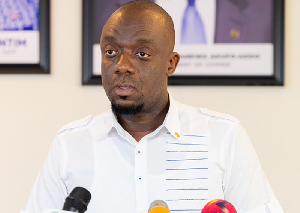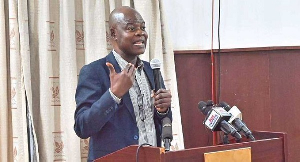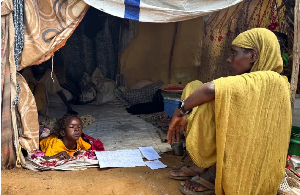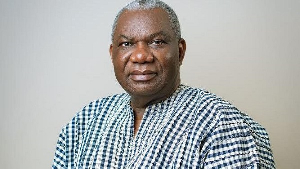(Part I)
By Dr. Michael J.K. Bokor
E-mail: mjbokor@yahoo.com
Thursday, September 15, 2011
My recent three-piece article on Ghana’s diplomatic manouevres toward Israel and the Libyan National Transitional Council (NTC) attracted diverse responses from readers. I have received e-mails with different messages, some expressing alarm, others commending my being open-minded, and some simply disagreeing with my stance and hurling insults at President Mills and me for whatever the readers might have objected to about the government’s action and my support for it. I appreciate those perspectives. That’s the beauty of this kind of discursive event.
One particular reader said: “I respect your position, and I am trying to convince myself that a man of your stature would not risk his integrity by writing or commenting about things so controversial, knowing that he is speaking against the beliefs of over 75% of his audience. I know that forward looking is important, and that governments make decisions about their national interests... What is then, the foundational elements of the national interests that moved you or swayed you to your position?”
Some questioned why after writing several articles critical of the West’s handling of the Libyan crisis through military aggression I should turn round to endorse the rebel leadership as a legitimate replacement for the Gaddafi government. They wondered why I should support the Ghana government’s offering of diplomatic recognition to the National Transitional Council (NTC).
In their responses too, they questioned why I supported the restoration of diplomatic ties between Ghana and Israel, indicating that I was betraying the cause of Pan-Africanism (interests of people of African descent anywhere in the world) or that I was supporting Zionism (Israeli aggression against Arabs and contempt for dark-skinned Africans, including the Falashas of Jewish ancestry).
These queries raise serious issues that should be confronted. Running through the queries was a string of concepts ending in “ism” such as Pan-Africanism, Nkrumahism, imperialism, colonialism, neo-colonialism, Zionism, and all others that have been at the center of the rhetoric against those perceived as the “enemies” of Africa. The import of the queries is that my viewpoints run counter to the norm, especially in the context of all those “ism” slogans.
My answer to these queries is simple: pragmatism. I insist that Ghana has a lot to gain from such diplomatic manouevres and must make its presence felt. This overzealous sloganeering in support of fatuous ideals and failure to tap into opportunities is our bane, not boon.
Shouting slogans with all those “isms” and refraining from aligning with systems for economic cooperation won’t put food on the table of the poor starving millions of Africans whose sweat and toil generate revenues that are greedily appropriated by the sloganeering crooks governing these African countries. These slogans are a mere smokescreen behind which they adroitly exploit the system.
If slogans were enough to solve countries’ problems, Ghana would have been better developed and Ghanaians won’t be tempted to leave the country for greener pastures anywhere. Ghanaians are known for their staunch support for all those slogans ending in “ism” as well as all the ideals that feed the empty rhetoric of repudiation; but all this overzealousness has led us nowhere beneficial.
I understand and appreciate the principles behind all these “ism” slogans (especially Pan-Africanism as cited in the queries); but I hesitate to support recourse to them in determining Ghana’s foreign policy initiatives because they are not relevant to our modern-day needs.
What is there to prove that Pan-Africanism has helped us in concrete terms to advance? How about Nkrumah’s “African Personality” or all that Du Bois, George Padmore, among others, advocated within the ambit of Pan-Africanism? Are these ideals being used to give Africa’s millions of people the relief that they’ve cried for all these years? Or has Nkrumah’s idea of a continental Union Government or an African High Command materialized to give the continent the impetus for development? Adherence to all those empty slogans has shackled us in all senses!
We must be careful the extent to which we carry this kind of sloganeering craze. Such empty rhetorical hot air has no place in today’s world when people need practical action to achieve objectives, paramount among which is the improvement in living conditions. Such misplaced fervour is dangerous and must be weeded out before it festers into something more ominous than we need or can accommodate.
What is the significance of all these slogans and tags to us, I repeat? If they are worth anything at all, are they not to arouse consciousness about our particular circumstances and, therefore, galvanize us to take action to improve those circumstances? Can someone point to any particular lasting concrete benefit of these slogans? Are we sure we are proud of what these slogans have done to us?
Do we have African unity, let alone any concrete relationship with others under the banner of Pan-Africanism to warrant any objection to Ghana’s diplomatic manouevres toward Israel and the NTC in Libya or to condemn such a move as a betrayal of the “African spirit,” whatever it means?
If Pan-Africanism were useful in any way, couldn’t it have helped us solve pertinent problems? There are conflicts between many African countries all over the continent. Sadly too, there is no avenue for intra-African commerce through bilateral, trilateral, or multilateral trade or economic cooperation for mutual benefits. What is there about the Pan-Africanist slogan to encourage us that upholding it and hiding behind it to isolate other countries will serve a better cause?
Make no mistake. I acknowledge the fact that sloganeering is an integral part of politics anywhere in the world. Even, the US’ Obama entered office on the crest of one (“Change”) but whether he has succeeded in effecting any change is still in the womb of time. Our problem in Ghana is that we spend too much time talking (sloganeering) but do very little about what we profess. Pre-occupied with this sloganeering, we are quick to know our problems and their causes but can’t solve them through workable means.
We refuse to accept reality and choose the easiest way out, which is to mount rooftops to blame other people for our woes. We do very little in practical terms to solve problems and hide behind empty sloganeering while our existential problems worsen and our country’s professionals and others desert the country in droves for greener pastures in other countries only to be subjected to dehumanizing conditions.
For decades, we have been trumpeting all these slogans with no practical result to show for them. Can’t we, for once, recognize the futility of such ventures? Can’t we go beyond these slogans to do as others have done to achieve practical results by improving their living circumstances and preparing their countries for a brighter future?
What has adherence to those “isms” helped us do to be at par with or to develop better than the countries and systems against which we shout those “isms”? Away with all these empty “ism” slogans and let common sense and pragmatism dictate how our government should deal with others in the world!
We must be forward-looking in all that we do if we should make progress. At the end of the day, the ordinary suffering Ghanaian won’t care that much where the resources for national development come from but will be happy to live in decency if the government performs its functions efficiently to improve living conditions. And it takes resources to do so. Whatever we can do to position the country to attract those resources should be done without allowing anybody to put any spoke in the wheel.
Continued in the next installment…
Opinions of Saturday, 17 September 2011
Columnist: Bokor, Michael J. K.














